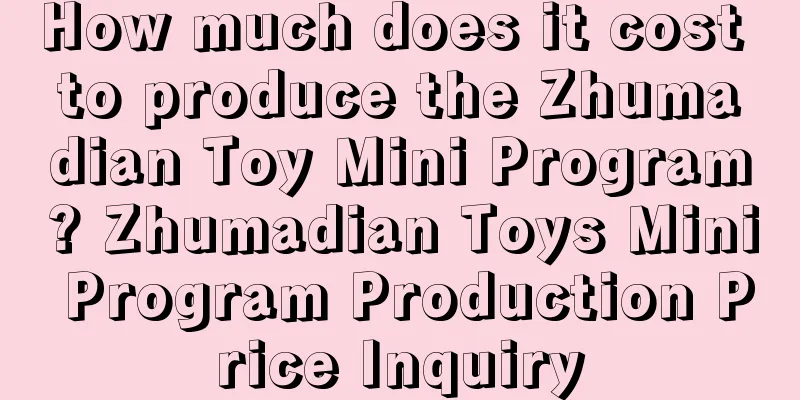The era of the Internet of Things system: goodbye iOS and Android?

|
With the implementation of smart scenarios such as smart cars, smart homes, and smart transportation, smart life scenarios are becoming a reality. At the technical application level, the realization of these smart scenarios requires the support of operating systems. In this case, the position of IoT operating systems with IoT technology as the core is becoming more and more prominent.
At the same time, domestic companies such as Huawei, Xiaomi, BAT, which have extensive layouts in smart hardware, have also begun to enter the IoT operating system, which has to some extent promoted the rise of domestic IoT operating systems. Xiaomi Vela enters the market, a new player in domestic IoT At the MIDC 2020 conference held recently, Xiaomi released the Vela system, becoming a "newcomer" in the field of domestic IoT operating systems. From a technical perspective, Xiaomi Vela system is an IoT operating system built based on the open source embedded operating system Nuttx. It is mainly aimed at applications in smart home products, but it is currently still in the stage of integration development with products such as speakers, sports bracelets, and watches. For Xiaomi, it has extremely strong competitiveness in the field of smart home, and the Vela operating system can also bring it many benefits. The same is true for Huawei, BAT and other companies. First, smart home, wearable devices, smart cars and other terminal products are in full swing, but these products are independent of each other and difficult to interact with each other. In this case, it is particularly important to have a complete operating system. Companies that can develop their own IoT operating systems can naturally establish higher competitive barriers in the market. Secondly, changes in the domestic and overseas market environment have also made more technology companies realize the importance of technological independence. This change in the market has made domestic companies more willing to gain more autonomy in the market by developing their own IoT operating systems, thereby reducing the risk of dependence on the software industry chain. Considering various factors, it is not difficult to understand why domestic enterprises choose to enter the IoT operating system market now. After Xiaomi, Huawei, and Alibaba entered the market, the domestic market also set off a wave of self-developed IoT operating systems. Considerations behind the craze for self-development In the era of mobile Internet, Android and iOS, the two operating systems, have occupied the vast majority of the mobile operating system market with their rich ecological advantages. According to statcounter survey data, in 2019, iOS and Android systems accounted for 97.93% of the global market share, basically monopolizing the global market; in the desktop operation field, Microsoft is the only one, and the Windows 10 system accounts for more than 50% of the global market share. With their advantages in the mobile and desktop operating system markets, companies such as Google, Apple, and Microsoft have gained huge profits throughout the Internet era. For example, the good experience of Apple's iOS system has laid a solid foundation for the expansion of the iPhone market; and the open source Android system has brought Google more than 1 billion users and revenue from advertising, APP and other services. The huge profits created by operating systems naturally attracted many domestic companies that coveted this field to participate in the competition of operating systems. However, in the field of mobile and desktop operating systems, overseas companies such as Google and Microsoft have already firmly controlled most of the market with their years of accumulation, and it is difficult for domestic companies to enter the core areas. However, in the new field of the Internet of Things, the market is still in the development stage, and overseas companies do not have an absolute advantage, which creates opportunities for domestic companies to develop their own operating systems. On the technical level, the IoT operating system can solve the problem of industry fragmentation and create a good IoT ecological environment. As a result, domestic companies entering the field of Internet of Things have entered the market and developed their own IoT operating systems. In the current market, domestic IoT operating systems such as Alibaba AliOS, Tencent TecentOS tiny, Huawei Hongmeng, and Baidu DuerOS have all appeared in the market and have achieved technical applications in terminal fields such as smart homes, mobile phones, and smart connected cars. As domestic companies enter the market one after another, overseas companies have also begun to increase their investment in the field of IoT operating systems. In the overseas market, companies such as Google, Amazon, and Microsoft have already launched their own IoT operating systems. Compared with these companies, domestic companies still have a gap in the ecological popularization of IoT operating systems. Ecological construction is still a problem Whether an operating system can be recognized by the market depends mainly on its ecological advantages. The domestic IoT operating systems that are being developed are facing problems in this regard. In the IoT operating system market, overseas companies have more advantages in terms of ecology. For example, the Android Things system launched by Google and the Windows IoT system launched by Microsoft are rapidly expanding the market in the field of IoT with their ecological advantages in the fields of mobile and desktop operating systems. In contrast, domestic companies' IoT operating systems are still in the early stages of construction and do not yet have strong competitiveness. For example, Huawei's Hongmeng system has been used in smart screens and smart watches, but it will take time to achieve full application in smart homes, smart cars and other fields; Alibaba's Alio system is mainly used in the field of smart cars, and its application in other fields needs to be expanded; Xiaomi's Vela operating system, which is still in the integration development stage, needs more time to polish. From the market perspective, the ecological advantages of Google and Microsoft are exactly what domestic companies lack, and this is also the main problem faced by domestic IoT operating systems in their development. Therefore, for domestic companies, how to quickly expand the ecology in the field of IoT operating systems is an issue they urgently need to solve. The booming IoT market in China has brought some good news to domestic companies' ecological construction in the field of IoT operating systems. Where is the domestic IoT operating system heading? In the new battlefield of IoT operating systems, domestic companies still have the opportunity to catch up with overseas companies. On the one hand, in the severely fragmented IoT market, hardware products are independent of each other, and overseas companies do not have a clear advantage in this field. On the contrary, hardware ecosystem companies such as Xiaomi and Huawei, which focus on the AIoT ecosystem, have inherent advantages in product applications. On the other hand, the increased support for new infrastructure policies has promoted the development of technologies such as 5G communications, the Internet of Things, and AI, and has driven the rapid growth of the Internet of Things market size, which is naturally of great help to the ecological construction of domestic IoT operating systems. Faced with such an opportunity, Huawei, Xiaomi, BAT and other companies naturally do not want to miss this opportunity. As each company deepens its layout, friction in the market is inevitable. However, at present, the competitive relationship between domestic companies in the field of IoT operating systems is not obvious. Specifically, in the current IoT operating system market, Alibaba's AliOS is mainly aimed at smart cars, Huawei's Hongmeng system is committed to the "1+8+N" ecosystem, and Xiaomi's Vela is aimed at the smart home field. The three companies have not had a head-on confrontation. After avoiding direct confrontation in the market, domestic IoT operating systems can also achieve faster development, and operating systems such as Huawei Hongmeng and Alibaba AliOS can also expand their ecosystems faster. In addition, with the support of the booming domestic Internet of Things industry, the ecological construction of domestic enterprises can also go further. It is foreseeable that domestic enterprises will have stronger competitiveness in the future IoT operating system market. However, in terms of operating system ecosystem construction, domestic enterprises still need to speed up their pace in order to win the game with overseas enterprises. |
<<: Bullying us secretly? This WeChat update is very unethical
>>: 16 practical tips hidden deep in iPhone, 5-year-old users only know 3 of them
Recommend
Strategy for operating Douyin in the used car industry!
1. Current situation of second-hand car transacti...
Sharing practical tips on Weibo operations: How to quickly increase followers in a pleasing way?
As an important part of new media and social medi...
2 long product guide pictures completed in 3 days. Why are people so keen on guides?
I graduated from university with a major in e-com...
Haidilao is praised, but Didi is in trouble. Let’s learn about the DISCO principle of public relations crisis management
Many companies have recently encountered crisis c...
How long does it take for Kuaishou’s small yellow car to arrive in my account? How to activate the yellow car?
This article mainly introduces how long it takes ...
WeChat for Windows upgraded to version 3.3.0: You can browse Moments and search for updates
After 7 years of waiting, WeChat for Windows can ...
【GitHub】Super practical skills, just read this one article!
There have been friends who left messages to the ...
How SEO Got My App 150,000 Downloads
After reading this article, I have a question: th...
From account maintenance to monetization, a practical guide to the entire process of private domain traffic
At the beginning of 2020, a sudden epidemic cause...
SEO service cost calculation formula, what is the general cost of corporate SEO outsourcing service companies based on the calculation method?
Businesses often decide to hire an SEO company in...
How much does it cost to customize the Wenzhou logistics mini program? What is the customized quotation for Wenzhou Logistics Mini Program?
More and more businesses are paying attention to ...
The most complete short video operation guide
Compared with text, short videos are more intuiti...
The user growth system behind Xiaohongshu’s massive content!
Some time ago, it was the Double 11 Shopping Fest...
Toy Mini Program Franchise Price Query, How much is the Toy Mini Program Franchise Price?
How much does it cost to join the Dongguan Toys M...
Anti-aliasing processing method for image deformation
[[148963]] Preface I saw @周楷雯Kevin talking about ...









